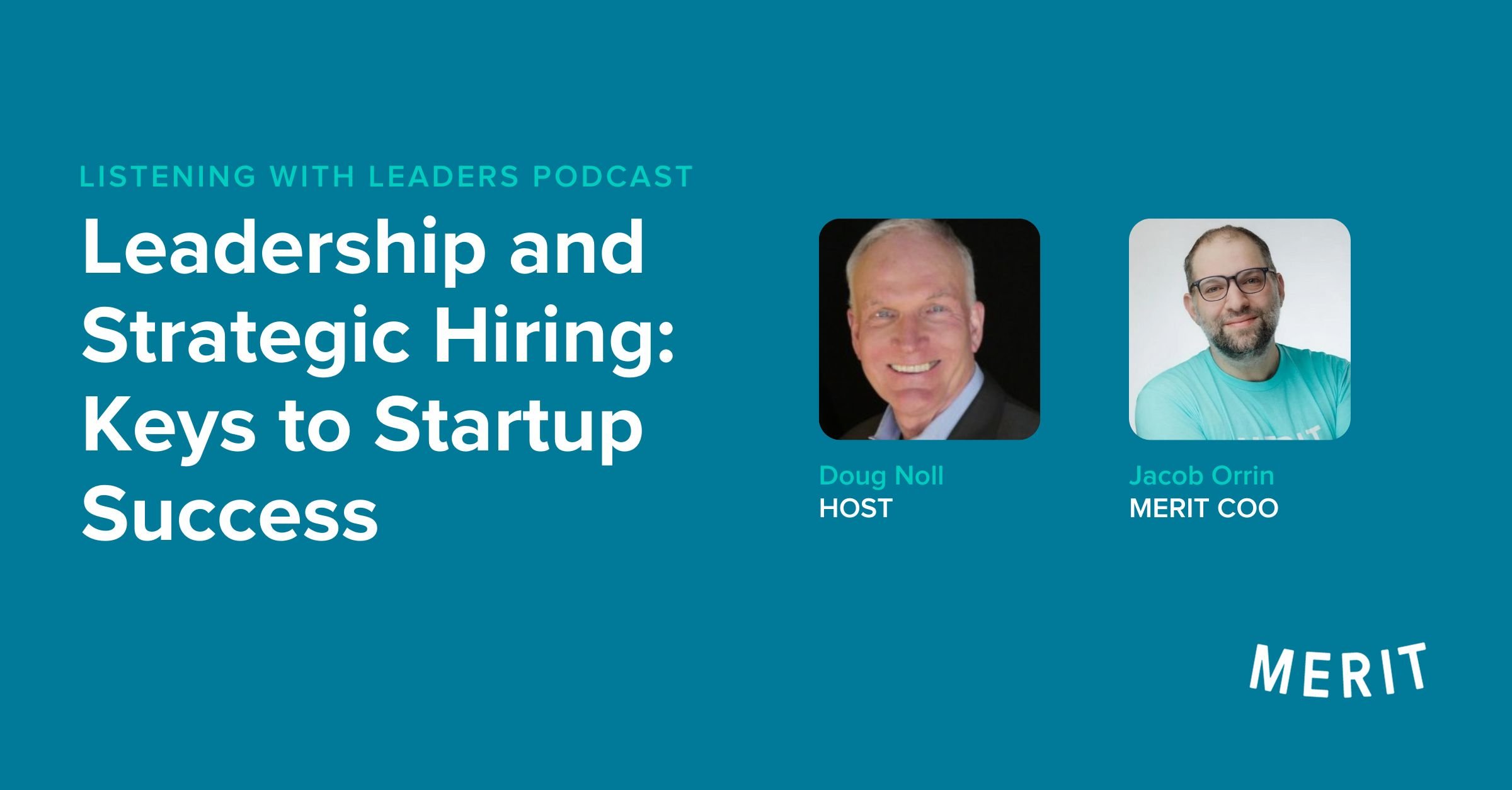Twelve Golden Rules From The Kitchen For Effective Leadership: ‘Mise En Place’
We’ve often been taught that “faster is better” when hustling to get a job done, but during my time working in the catering business, I learned...
2 min read
Merit Oct 30, 2023

Jacob Orrin, our fearless COO, co-founder, and after-hours chef, recently appeared on Doug Noll's "Listening with Leaders" podcast. As a serial entrepreneur building his fourth startup, Jake shared invaluable perspectives on leadership, company culture, strategic hiring, and more.
Here are ten main ingredients from Jake's recipe for operationalizing startup success:
1. Invest in Company CultureFrom day one, Jake has focused on nurturing company culture and psychological safety:
"We invest heavily in our culture and teach interpersonal skills like giving and receiving feedback. I role model behaviors such as delegating and addressing issues transparently."
He holds training sessions and leads by example, recognizing culture as a competitive advantage.
2. Listen DeeplyCommunication and deep listening are core skills for Jake as a leader:
"My leadership philosophy centers around open communication. I strive to listen deeply, meet people where they are, and foster emotional safety."
This empathic approach enables trust and positively impacts performance.
3. Make Values-Based HiresJake interviews every candidate to ensure company culture fit. He states:
"You've got to treat hiring like baking a 9x9 pan of brownies. Every ingredient matters - the quantity, the quality of the culture you're building."
This reflects his care in prioritizing and finding people suitable for the team dynamics.
4. Embrace VulnerabilityDespite early mistakes, he admits to openly, Jake evolved into a warm, vulnerable leader:
"Those difficult managers have been the best educators of my life." Over time, the way Jake learned to become a leader that inspires goodness by consistently investing in himself.
He exemplifies how reflection and a growth mindset can transform leadership ability.
5. Maintain Work/Life IntegrationAs a hands-on COO with four young kids, Jake models strong work/life integration. He shared:
"It's still in my life around work-life integration when you're working from home...then it's getting the kids ready, getting them out the door."
He demonstrates leadership while making family a priority and encourages his team to do the same.
6. Boost Access to ServicesJake is motivated by technology used for the greater good. He shares a story of how they rapidly increased the accessibility of education grants in Ohio, making it now the largest supplemental Education Savings Account program in the country.
7. Turn Challenges into LessonsJake transforms difficulties into learning opportunities. For example, he leveraged early mistakes with company culture into positive change. As he mentions:
"I remember the first company I worked at, I tried to emulate the leadership style of the CEO, and there were people in tears I was the worst manager...it wasn't until my second startup and that I got to work for other amazing people that I was able to see what kind and empathetic managers looked like." From this experience, Jake learned the importance of compassionate leadership.
8. Sharpen Your SkillsComplacency is not an option for Jake. He strives to "sharpen his pencil" through meditation and working out consistently–especially when life tends to 'dull him down.'
9. Coach Team PerformanceJake takes a hands-on teaching approach, "lurking" in meetings to observe teams and follow up with personalized coaching.
10. Focus on FulfillmentJake dreams of opening a nonprofit restaurant someday and shares more about how cooking for others is an act of love. He is driven by contributing to others.
He provides a blueprint for integrating strategic hiring, values, Vulnerability, and continuous growth into startup leadership. His insights on Listening with Leaders are invaluable for aspiring founders and experienced leaders alike.
In the past, credentials were managed piecemeal - an important piece of paper here, a transcript there - but new technology has allowed for credentials to be digitized, simplifying credential management.
We’ve often been taught that “faster is better” when hustling to get a job done, but during my time working in the catering business, I learned...
Your people are your most valuable asset and your biggest competitive advantage. Invest in them wisely, and they’ll take your company places you...
Big workforce initiatives thrive on strong collaboration between ecosystem partners; however, navigating those projects may sometimes be challenging....